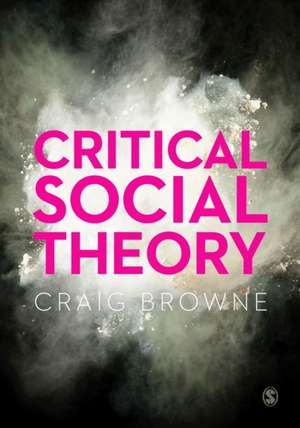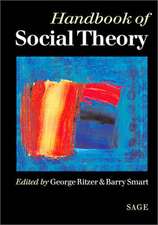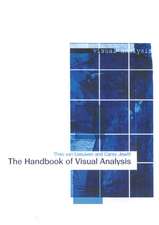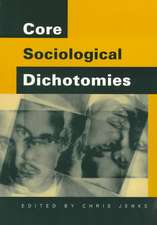Critical Social Theory
Autor Craig Browneen Limba Engleză Paperback – 22 dec 2016
Critical theory here is not solely the work of Adorno, Horkheimer, Marcuse and Habermas. The book begins with the Frankfurt School but uses this as a base to then explore more contemporary figures such as:
- Nancy Fraser
- Axel Honneth
- Luc Boltanski
- Cornelius Castoriadis
- Ulrich Beck
- Anthony Giddens
- Pierre Bourdieu
- Hannah Arendt
Preț: 332.98 lei
Nou
Puncte Express: 499
Preț estimativ în valută:
63.71€ • 66.52$ • 52.73£
63.71€ • 66.52$ • 52.73£
Carte disponibilă
Livrare economică 14-28 martie
Livrare express 27 februarie-05 martie pentru 28.84 lei
Preluare comenzi: 021 569.72.76
Specificații
ISBN-13: 9781446246931
ISBN-10: 1446246930
Pagini: 216
Dimensiuni: 170 x 242 x 20 mm
Greutate: 0.35 kg
Ediția:First Edition
Editura: SAGE Publications
Colecția Sage Publications Ltd
Locul publicării:London, United Kingdom
ISBN-10: 1446246930
Pagini: 216
Dimensiuni: 170 x 242 x 20 mm
Greutate: 0.35 kg
Ediția:First Edition
Editura: SAGE Publications
Colecția Sage Publications Ltd
Locul publicării:London, United Kingdom
Recenzii
Australian-based sociologist, Craig Browne reconceptualises Critical Theory in order to better understand how diverse social actors attempt to develop autonomous solutions to the contradictions produced by capitalism.
The search for a more just social order is thus intrinsically connected to explaining and critiquing the oppressive workings of capitalist societies. Browne’s analysis of capitalist modernisation uses Critical Theory to do just that, combining elements from Marx’s labour theory of value, Weber’s idea of rationalisation as a process of institutionalisation, Habermas’s theory of communicative action and Honneth’s concept of social freedom.
The search for a more just social order is thus intrinsically connected to explaining and critiquing the oppressive workings of capitalist societies. Browne’s analysis of capitalist modernisation uses Critical Theory to do just that, combining elements from Marx’s labour theory of value, Weber’s idea of rationalisation as a process of institutionalisation, Habermas’s theory of communicative action and Honneth’s concept of social freedom.
Cuprins
Introduction
A New Nexus of Social Change?
From the Critique of Objectification to the Reconceptualization of Alienation
System Integration and Social Disintegration
The End of Immanent Critique?
Positive Liberty and Social Justice
Social Freedom and Social Autonomy
Conclusion
A New Nexus of Social Change?
From the Critique of Objectification to the Reconceptualization of Alienation
System Integration and Social Disintegration
The End of Immanent Critique?
Positive Liberty and Social Justice
Social Freedom and Social Autonomy
Conclusion
Descriere
This sophisticated and cutting-edge exploration of the state of critical social theory today relates the key concepts and theorists to major contemporary developments such as globalization, social conflict and neo-liberal capitalism.












